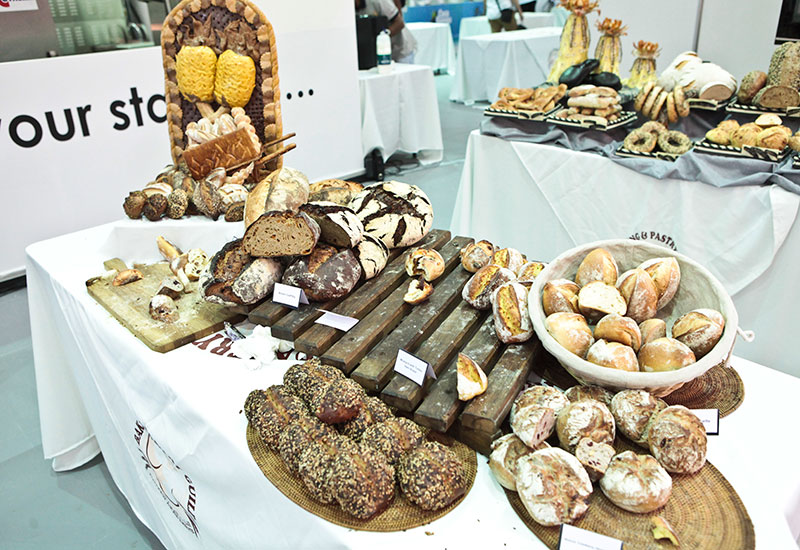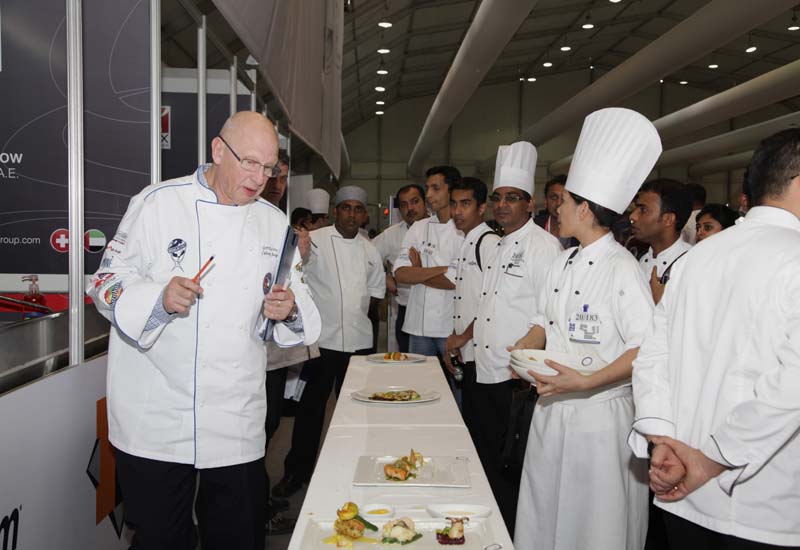And while Gulfood 2015 saw a host of major companies bringing their latest products and offers, the event also saw plenty of smaller businesses looking to make an impact and capture new markets. Among them was Koita, exhibiting for the first time with its own stand within the American pavilion. The company has offices in Chicago and Dubai.
The company distributes a range of American snacks, including Cape Cod potato chips and Snyder’s pretzels, as well as Gococo coconut water, which has no added sugar, and its own branded organic milk.
Speaking to Caterer Middle East, founder and CEO Mustafa Koita explained how, while retail had been the focus until now, he was now in discussions with the Horeca industry.

| Advertisement |
“At this event, we’ve been approached by a tonne of Horeca guys. And our coconut water has shown up at some of the hotels, the brunches. There’s a whole rehydration thing going on.”
He also detailed how the company had grown over the last three years, building on the increasing demand for organic and healthy food and snacks. Koita added: “We’re not there yet, but I think we will be there quickly.
“This is the first year we’ve had our own stand, and it has been so good. We’ve gone through all the growing pains of a smaller company, and we’re learning to do things on our own — working with the government on food compliance and teaching people about organic.”
Health and Wellness
Speaking about organic and healthy food and snacks, the exhibition this year showed a marked trend towards health, nutrition and wellness in its products — from ingredients to equipment.
Canada Beef highlighted the nutritional benefits of the meat it supplies. Robert Serapiglia, director of busines development and innovation at Canada Beef, said: “We’re expanding our messaging from just brand awareness to nutrition,” he said. “We have our registered dietician attending [Gulfood], putting the focus on the nutritional powerhouse that beef is.
“Health and nutrition is always a focus, especially in a demographic that has an older population. Beef complements a nutritious diet very well and we are here to educate not only health professionals, but also the industry on what those healthy attributes are.”
In equipment, Greenfield World Trade showed its commitment to health and wellness with some of its new products. One of its manufacturers, Excalibur, is involved with dehydration for health and wellness, otherwise known as drying.
Greenfield World Trade vice president Jonathan Vadnos said: “We can take any product — protein, meats and fishes, vegetables, fruits — and over anywhere from a 6-20 hour period, depending on the thickness of the produce, extract all the water from that product.
The great thing about dry food is that it leaves all the minerals and the vitamins, essential nutrients inside. Then you’re able to store it at room temperature, no refrigeration needed, for years and years, up to around 15 years. So you can produce dehydrated bananas, apples, beef jerky, dried fish.”
He continued: “Health and wellness is becoming a trend on a global basis because people want to reduce and combat and fight diabetes, obesity, high blood pressure, leukaemia, cancers. Between the current two pillars of health and wellness, ie dehydration and juicing, we are able to support the industry with our Omega juicers and Excalibur dehydrators.”
JM Posner was also attracting a lot of crowds at its stand keen to try out the new LightFry oven, which can prepare fries without the need for a single drop of oil. Other fried foods can also be cooked in the machine, such as onion rings, chicken nuggets and breaded mozzarella.
The two-phase patented preparation process sees steam thoroughly cook the fries, before a stream of hot, dry air gives them a crispy surface, and are 40%-60% lower in fat.
Trade, Tourism and Investment Office of Peru in the UAE’s director Alvaro Silva Santistebansaid that one of the first products he wanted to introduce when he arrived in the Middle East was quinoa.
He said: “Nobody knew about quinoa, nobody wanted quinoa, it was like a myth. Today there’s so much demand for quinoa that we have to produce extra.” The firm is looking to strengthen its presence in the superfood sector with other grains as a complement to this health product.
Article continues on next page ...










 Search our database of more than 2,700 industry companies
Search our database of more than 2,700 industry companies









